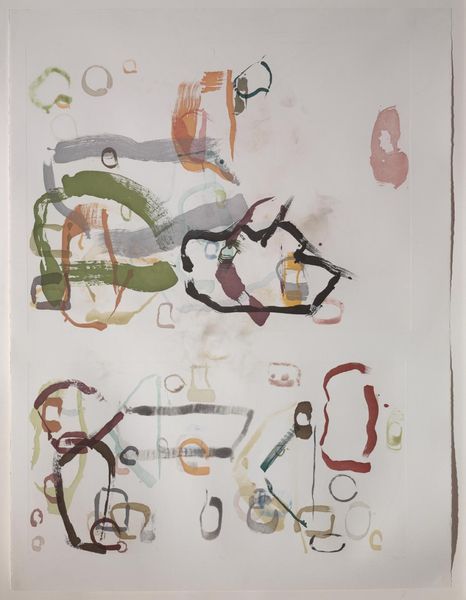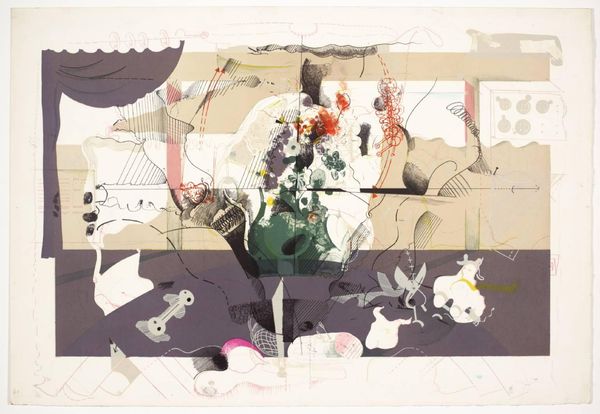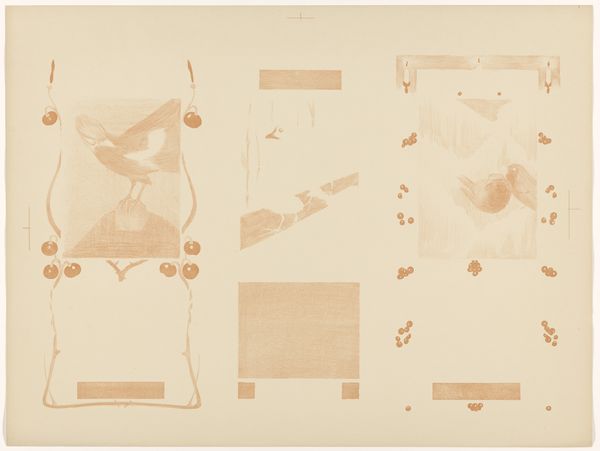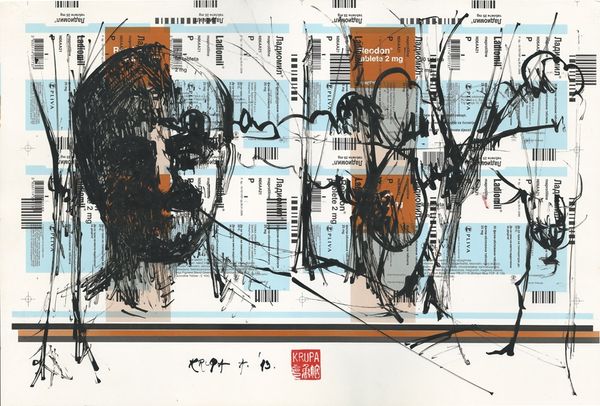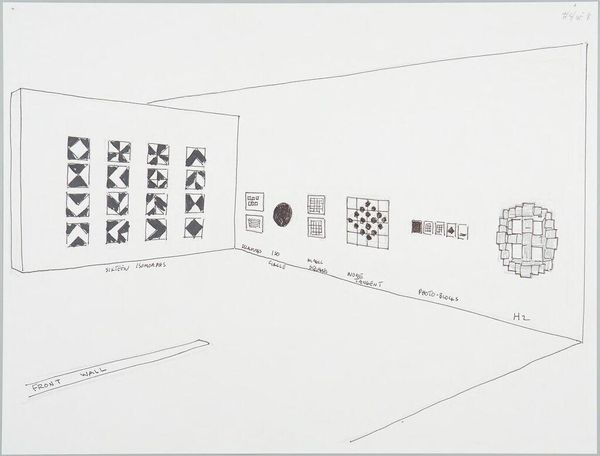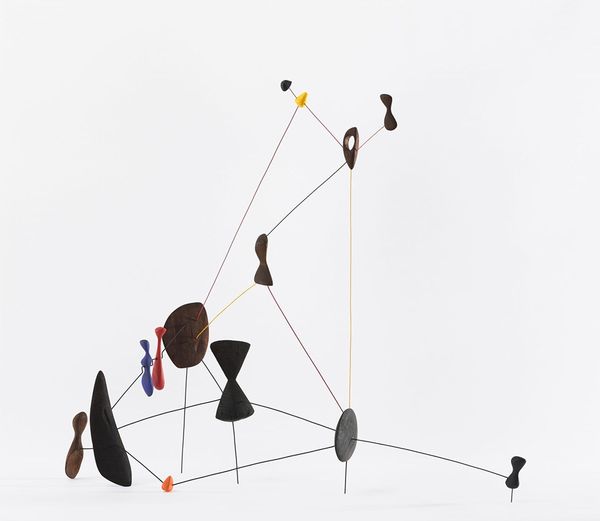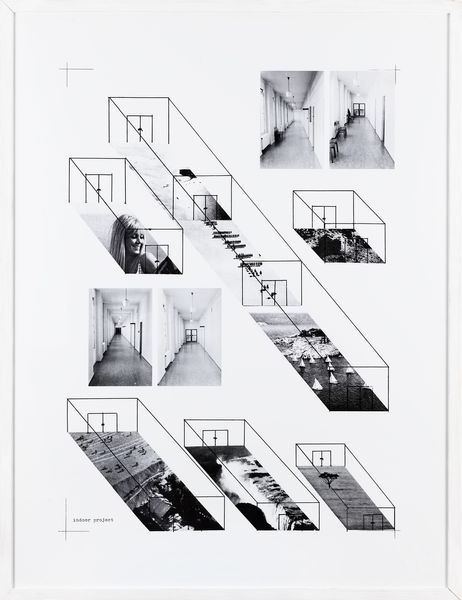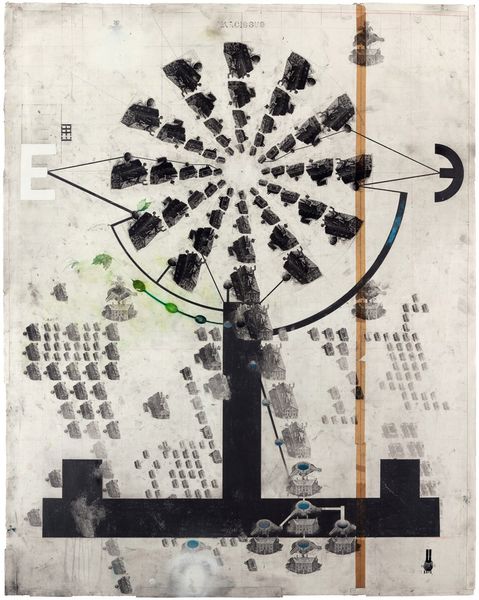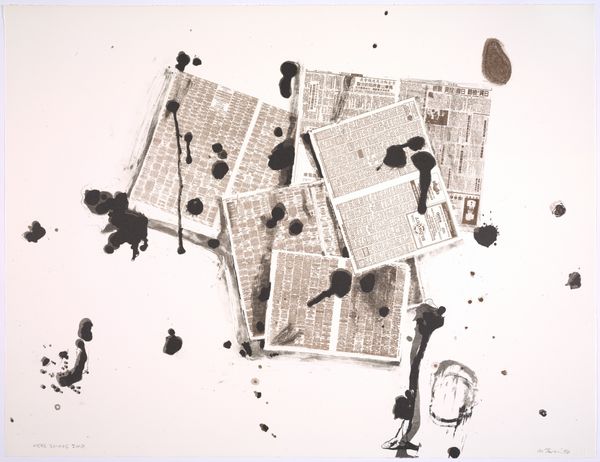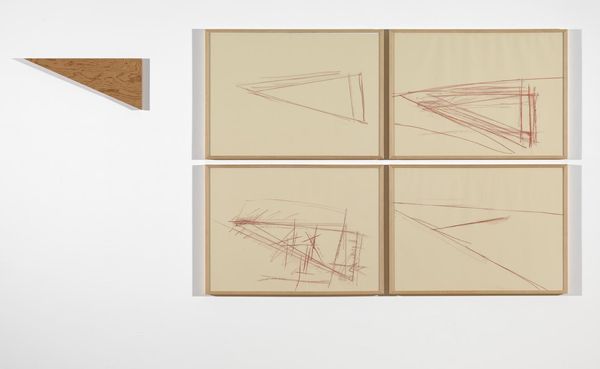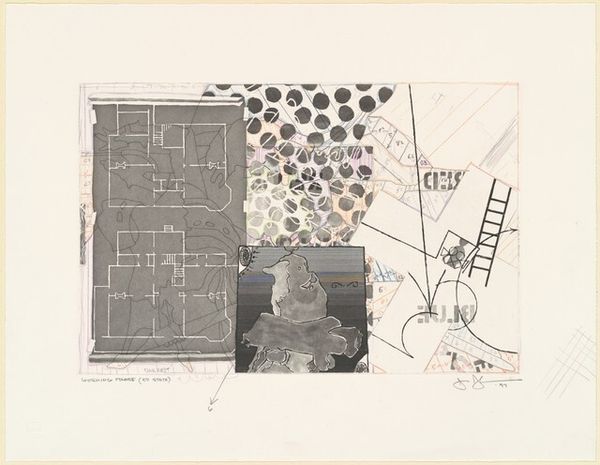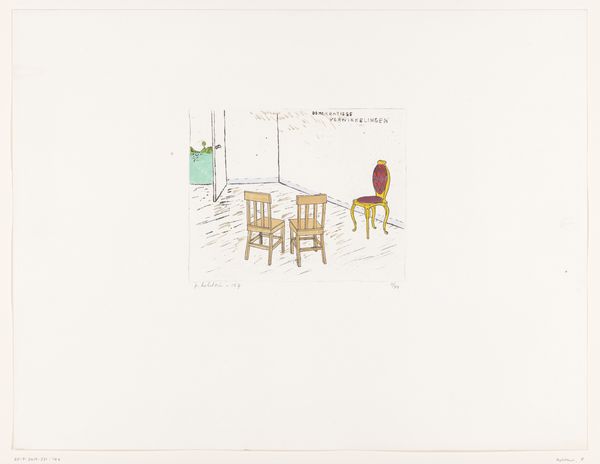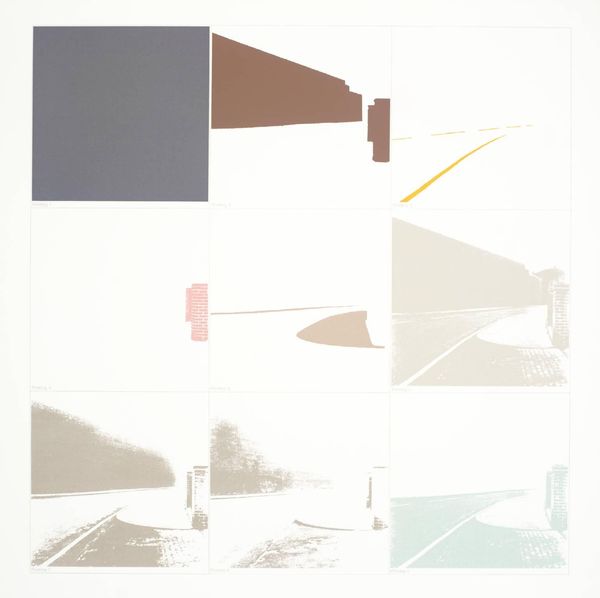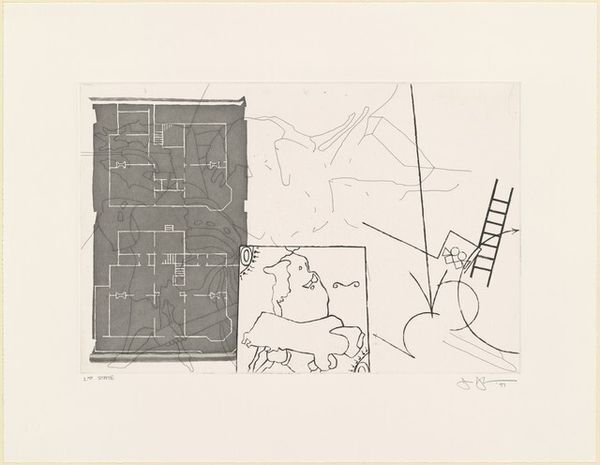
Dimensions: unconfirmed: 2665 x 1700 mm
Copyright: © Richard Hamilton 2014. All rights reserved, DACS | CC-BY-NC-ND 4.0 DEED, Photo: Tate
Editor: So, this is Richard Hamilton’s *Typo/Topography of Marcel Duchamp’s Large Glass*. The piece is undated, but we know Hamilton was deeply invested in Duchamp's work. It strikes me as a kind of exploded diagram, almost like an engineer's fever dream. How do you interpret this work? Curator: It’s a fascinating map of the mind, isn’t it? Consider how Hamilton uses the visual language of technical drawing—the blueprints and schematics—to engage with Duchamp’s iconography. What emotional resonance do you find in Hamilton's choice to layer text and image in this way? Editor: It feels like he’s trying to dissect Duchamp's thought process, like archeology. The symbols and diagrams build a kind of puzzle. Curator: Precisely! He's digging into the cultural memory embedded within Duchamp’s work, and in doing so, invites us to do the same. It shows how one artist can inspire and transform another's symbolic language. Editor: It's interesting how Hamilton uses the "blueprint" as a lens to understand Duchamp’s work. I’ve definitely got a new perspective on both artists now.
Comments
tate 3 months ago
⋮
http://www.tate.org.uk/art/artworks/hamilton-typotopography-of-marcel-duchamps-large-glass-p78916
Join the conversation
Join millions of artists and users on Artera today and experience the ultimate creative platform.
tate 3 months ago
⋮
Hamilton has described the Large Glass as ‘an epic poem, a technical treatise and a pictorial masterpiece’. In this print, he combines a diagram of the artwork with English translations of Duchamp’s notes from the Green Box, bringing together the visual and literary elements of Duchamp’s project. The Typo/Typography underlines Duchamp’s desire to create a work that required an analytical response from the viewer, rather than a purely aesthetic one. Gallery label, August 2011
